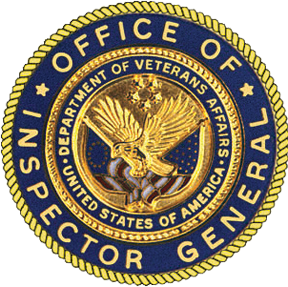Improved Oversight of VHA’s Nonexpendable Equipment Is Needed
Report Information
Summary
VHA staff use nonexpendable equipment—durable items that can be continuously used for two years or more—to deliver patient care and operate medical facilities. This equipment must be inventoried annually if it is valued at $5,000 or more, sensitive in nature, or capitalized property. These inventories minimize the risk of mismanaged or lost property and help ensure items are adequate for patient use. The OIG conducted this audit to determine whether VHA managed accountable nonexpendable equipment in accordance with policy.
Overall, the OIG found VHA’s management of nonexpendable inventory can be improved. The OIG estimated that VHA medical facilities could not account for at least 75,500 items (5 percent). These items had a collective value of at least $210.9 million, which the OIG considered as funds VA could have better used. During site visits, the audit team searched for equipment and did not find an estimated 537,000 items (33 percent) at their last inventoried location. Finally, the audit team found an estimated 62,500 items that facilities may not need.
These concerns were created, in some cases, by staff’s use of the “inventory by exception” process. This means that if an item was accounted for since the last annual inventory—because it needed maintenance, for example—it does not need to be included in the next scheduled annual inventory. However, this process weakens facilities’ assurance that the equipment is accounted for and in good condition because it extends the interval between physical inventories. The OIG also found that the reports of survey processes for missing or damaged items have not been conducted as required, and general oversight of inventories could be strengthened.
The acting under secretary for health concurred with the OIG’s six recommendations to improve the nonexpendable equipment inventory process and related oversight.
Reassess and clarify physical inventory requirements for equipment in medical facilities to ensure they are consistent with and meet the intent of VA Directive 7002.
Ensure that facility directors require custodial officers to regularly review nonexpendable inventory to determine whether the equipment is required and take appropriate action.
Ensure medical facility directors review inventory list compliance data to identify noncompliant services and implement a process to resolve noncompliance.
Ensure the Veterans Health Administration’s Procurement and Logistics Office, in coordination with VA’s Office of Acquisition and Logistics, regularly monitors inventory compliance data to identify and communicate with noncompliant facilities to proactively address delinquent inventories.
Require medical facilities to use a standardized report of survey dashboard to centrally report all lost, stolen, or damaged items.
Require medical facility directors to review inventory compliance and establish a process to ensure noncompliant equipment—to include equipment identified in this audit—is reported as lost, stolen, or damaged within required time frames.
